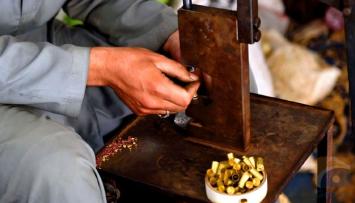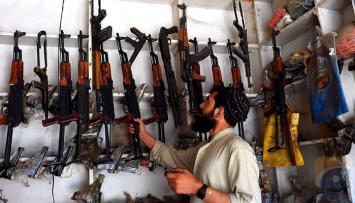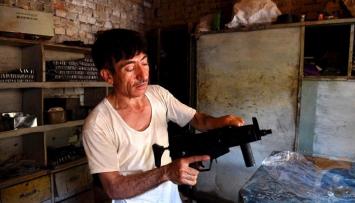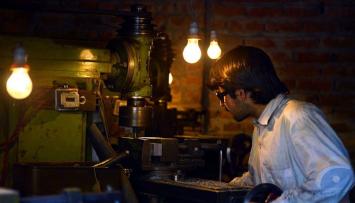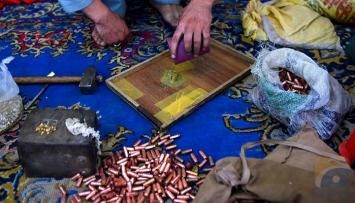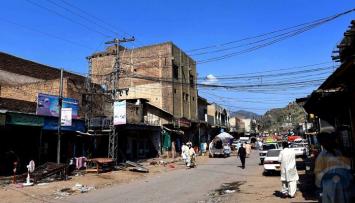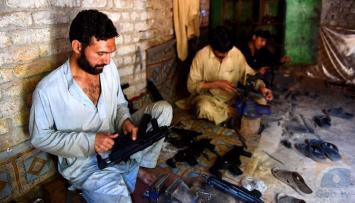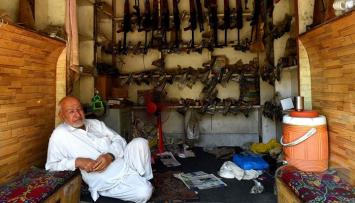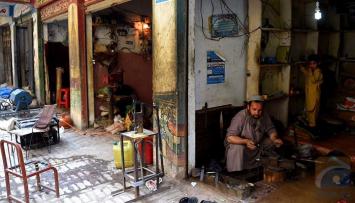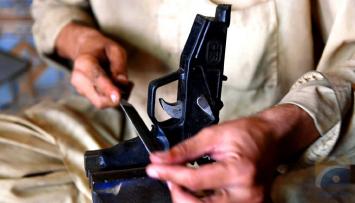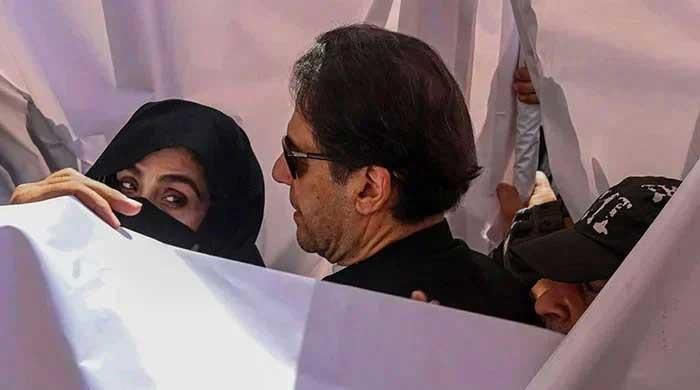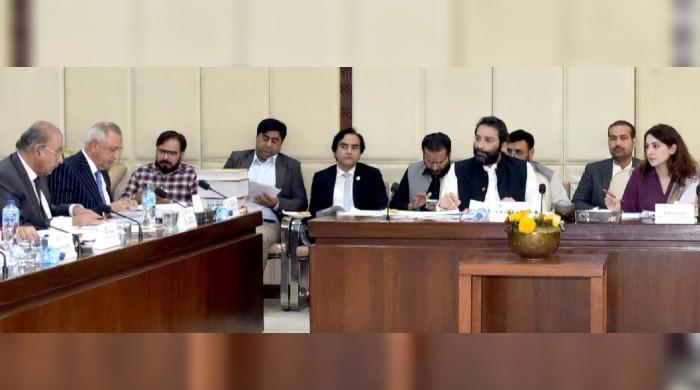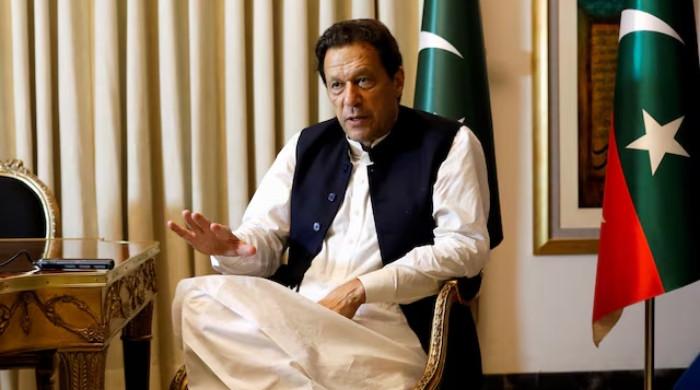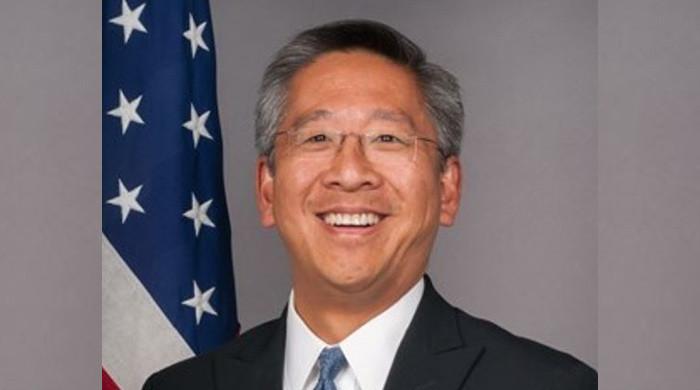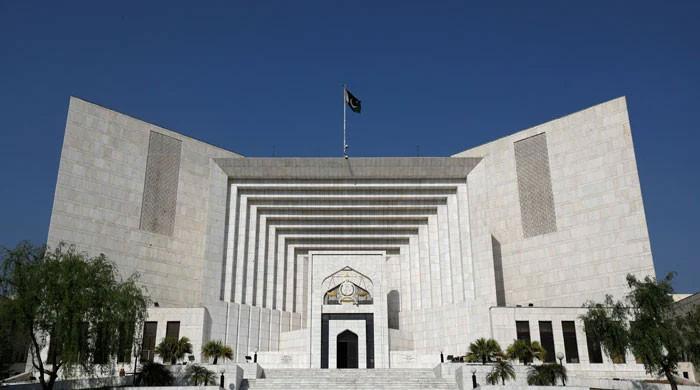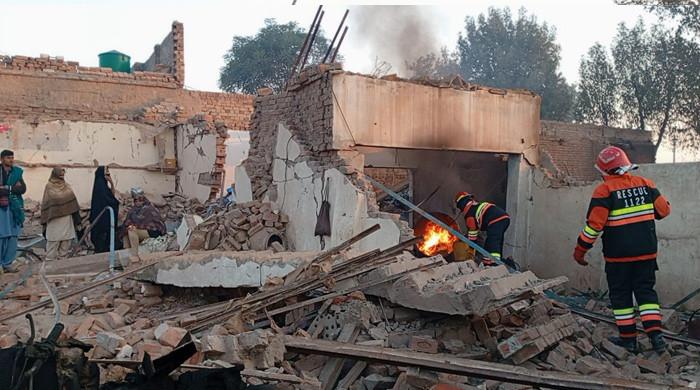A town near Peshawar where guns sell cheaper than smartphones
The gunsmiths in the bazaar say the region's improved security are withering an industry that sustained them for decades.
July 29, 2016
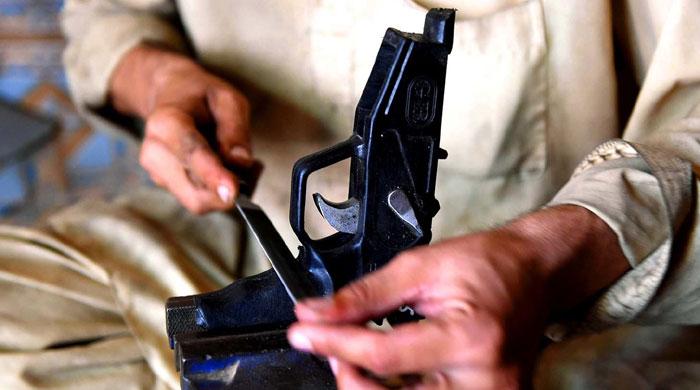
DARRA ADAMKHEL: Gunfire echoes through a dusty northwest tribal town, the soundtrack to Pakistan´s biggest arms black market, where Kalashnikovs welded from scrap metal are cheaper than smartphones and sold on an industrial scale.
Darra Adamkhel, a town surrounded by hills some 35 kilometres (20 miles) south of the city of Peshawar, was a hub of criminal activity for decades. People smugglers and drug runners were common and everything from stolen cars to fake university degrees could be procured.
This generations-old trade in the illicit boomed in the 1980s: The mujahideen began buying weapons there for Afghanistan´s battle against the Soviets, over the porous border.
Later, the town became a stronghold of the Pakistani Taliban, who enforced their strict rules and parallel system of justice -- infamously beheading Polish engineer Piotr Stanczak there in 2009.
Now Darra is clean of all but the arms, yet the gunsmiths in the bazaar say the region's improved security and authorities´ growing intolerance for illegal weaponry are withering an industry that sustained them for decades.
"(The) Nawaz Sharif government has established checkpoints everywhere, business is stopped," said Khitab Gul, 45.
Gul is known in Darra for his replicas of Turkish and Bulgarian-made MP5 submachine guns, one of the most popular weapons in the world, widely used by organisations such as America´s FBI SWAT teams.
The MP5 can retail for thousands of dollars. Gul´s version, which comes with a one-year guarantee, costs roughly 7,000 rupees, or $67 -- and, he claims, it works perfectly.
Gul then puts on a demonstration, test-firing his MP5 in the small outer yard of his workshop -- first the single shot mode, then firing in a burst.
A Darra-made Kalashnikov, Gul says, can sell for as little as $125, cheaper than most smartphones. "The workers here are so skilled that they can copy any weapon they are shown," he explains.
"In past 10 years I have sold 10,000 guns, and had zero complaints," he claims.
Wild West no more
In Gul´s sweltering workshop, employees shout over the roar of electrical generators as they expertly cut and drill through metal brought from the shipyards of Karachi, far to the south on the Arabian Sea.
The main bazaar which cuts through the town used to hold nothing but tiny gun shops crammed together, their gleaming wares displayed openly on racks as customers test-fired into the air above.
Trade was illegal, unlicensed and unregulated, but long tolerated by authorities with little power in the tribal areas between Afghanistan and Pakistan, where militants once operated with impunity.
Residents, for their part, viewed the market as legitimate in an area dominated by Pashtun traditions, where gun culture is deeply embedded in male identity.
But in recent years the military has cracked down on extremism, particularly in the tribal areas, and security is the best it has been since the Pakistani Taliban were formed in 2007.
Every second or third shop in Darra now sells groceries or electronics instead of weapons, the gunsmiths lament. The Wild West atmosphere is fading as the town embraces modern conveniences.
Before the crackdown Gul´s workshop -- just one of hundreds in the town -- could produce more than 10 weapons a day, he says.
Now they only produce four. "Demand has decreased," he says.
Customers are scared
Gunsmiths put the blame squarely on the Pakistani government and military, particularly checkpoints on the way to Darra halting customers who once travelled to the town openly.
Foreigners have been banned for security reasons.
The military has not yet objected to the gun market in Darra directly, but residents say they have had to give sureties they will not harbour militants, and a half-hearted attempt at licensing is now also being made.
Police and paramilitary officers were prominent at entry and exit points to the area during a recent AFP visit there.
"I have been working here for 30 years but now I have no work to do," says Muzzamil Khan, sitting idle outside his workshop. "I am ready to sell my lathe machine."
Muhammad Qaisar, making cartridges at his shop in the main bazaar, said at one point there had been up to 7,000 shops there -- but now almost half have closed.
If the government does not change its policies, he says, "I fear... Darra will be finished".
Darra trade union leader Badam Akbar confirmed that some 3,000 shops have closed, and said skilled workers are attempting to learn new trades. "Nothing is left in this bazaar now," he says.
Hundreds of gun shops still cram the narrow streets around the bazaar and the sound of gunfire still pierces the air -- albeit intermittently -- but the gunsmiths say it is not enough.
"We have no electricity, no water, no business," Akbar warns.
"Life has became very difficult."
